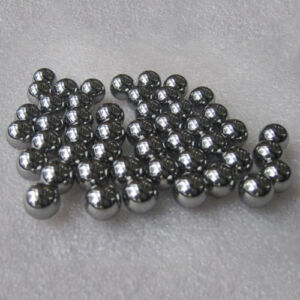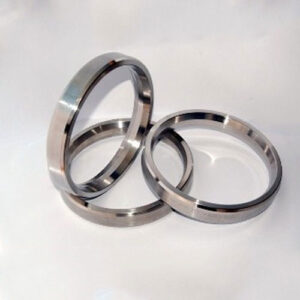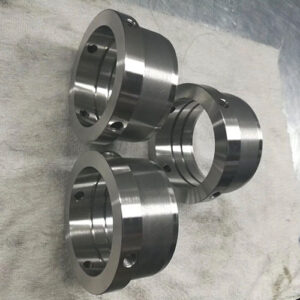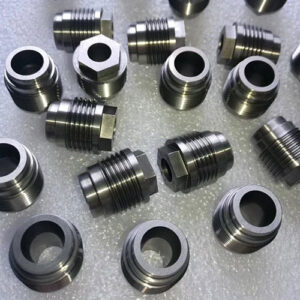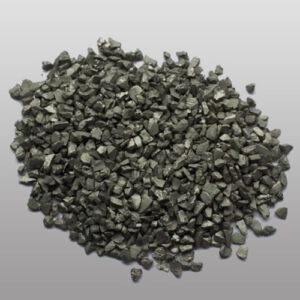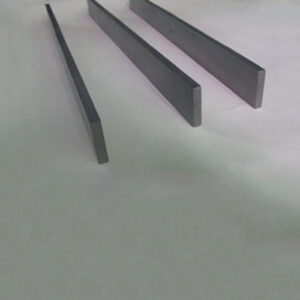Grinding balls are the objects or the media that are specifically used to reduce and accurate the particle size of materials for industrial applications. Traditionally, grinding ball have been widely used for various milling and industrial processes. These included hardened carbon steel, chrome steel, stainless steel, forged steel, etc. While steel has traditionally been used for the purpose of industrial grinding balls, it is fast being replaced by tungsten as the preferred material. Tungsten is used as both tungsten alloy as well as tungsten carbide for making high hardness and excellent strength grinding balls for various industrial applications such as mining industry.
However, with the change of technology, more modern nonmetallic products with superior qualities like tungsten carbide grinding ball are used in oil industries and offer multiple advantages of high hardness, anti-abrasive & corrosion and excellent strength in comparison to the traditional options, it has longer lifespan involving industries contribution.
What’s more, tungsten carbide spherical is most cost efficient hard facing materials, for long running, it brings good economic effectiveness used in oil industry and will widely spread to greater benefit.
Tungsten carbide grinding balls are used to homogenize large and resilient products which be managed with the help of smaller grinding beads. Tungsten carbide grinding balls are spherical with varying diameter ranges. While steel is also used for the same purpose, tungsten carbide grinding balls for the oil industry is highly demanded owing to their high density and hardness along with other features like abrasion resistance.
Tungsten carbide grinding balls are available in different sizes ranging from 0.4mm to 4” along with a high precision G3 and a density higher than steel ranging from 14.8 g/cm3, hardness 90.5 WEISON is the leading manufacturer and supplier of tungsten carbide grinding balls for oil industries around the globe.
We manufacture and sell the best Grinding Media
Our tungsten carbide grinding balls are made with extraordinary consideration to guarantee quality and strength. These minuscule, however, solid balls are ideal for squashing, grinding, and blending extreme materials into fine powders, making them most suitable for use in different enterprises.
The key to their sturdiness is the intense metal they're produced using. This material can withstand outrageous circumstances without breaking, which makes the balls keep going for quite a while, in any event, when utilized for hard-core errands. They keep their shape and execution, assisting you with effectively managing your business.
Our balls are painstakingly formed and measured to guarantee they fit completely in your hardware. This exact plan implies they move without a hitch and pound things equally, saving you time and exertion. You can depend on our Grinding Media to function admirably and reliably.
We invest wholeheartedly in giving items that are protected, productive, and dependable. These balls resist high strain and intensity, so you can trust them to work even in extreme conditions. Whether you're blending synthetics, grinding metals, or making a genuinely new thing, our grinding balls will assist you with accomplishing the outcomes you want.
With an emphasis on quality, each item we offer tries to fulfill high standards. You'll constantly be happy with your grinding requirements.
Tungsten Carbide Grinding Ball’s Variety of Sizes
|
0.4 MM
|
0.5 MM
|
0.7 MM
|
0.8 MM
|
1.0 MM
|
1.2 MM
|
1.5 MM
|
1.588 MM
|
|
1.6 MM
|
1.98 MM
|
2.0 MM
|
2.2 MM
|
2.5 MM
|
2.75 MM
|
3.0 MM
|
1/8″
|
|
3.5 MM
|
3.75 MM
|
3.8 MM
|
4.0 MM
|
4.5 MM
|
3/16″
|
5.0 MM
|
6.0 MM
|
|
1/4″
|
6.5 MM
|
7.0 MM
|
7.5 MM
|
5/16″
|
8.0 MM
|
8.5 MM
|
9.0 MM
|
|
9.5 MM
|
3/8″
|
10.0 MM
|
10.5 MM
|
11.0 MM
|
7/16″
|
12.0 MM
|
12.5 MM
|
|
1/2″
|
13.0 MM
|
13.5 MM
|
14.0 MM
|
9/16″
|
14.5 MM
|
15.0 MM
|
5/8″
|
|
16.0 MM
|
16.5 MM
|
17.0 MM
|
11/16″
|
17.5 MM
|
18.0 MM
|
18.5 MM
|
19.0 MM
|
|
3/4″
|
19.5 MM
|
20.0 MM
|
20.5 MM
|
21 MM
|
21.5 MM
|
22.0 MM
|
7/8″
|
|
22.5 MM
|
23.0 MM
|
23.5 MM
|
24.0 MM
|
24.5 MM
|
25 MM
|
1″
|
1 1/8″
|
|
1 3/4″
|
45.0 MM
|
1 7/8″
|
50.0 MM
|
2″
|
60.0 MM
|
3″
|
4″
|
Tungsten Carbide Grinding Ball’s Common Accuracy Class and Tolerance
|
Class
|
Vdwes
|
Vdwl
|
△Sph
|
Ra
|
S
|
|
Не более чем Um
|
|||||
|
3
|
0.08
|
0.13
|
0.08
|
0.010
|
±5
|
|
5
|
0.13
|
0.25
|
0.13
|
0.014
|
±5
|
|
10
|
0.25
|
0.5
|
0.25
|
0.020
|
±9
|
|
16
|
0.4
|
0.8
|
0.4
|
0.025
|
±10
|
|
20
|
0.5
|
1
|
0.5
|
0.032
|
±10
|
|
24
|
0.6
|
1.2
|
0.6
|
0.040
|
±12
|
|
28
|
0.7
|
1.4
|
0.7
|
0.050
|
±12
|
|
40
|
1
|
2
|
1
|
0.060
|
±16
|
|
60
|
1.5
|
3
|
1.5
|
0.080
|
±20
|
|
100
|
2.5
|
5
|
2.5
|
0.100
|
±40
|
|
200
|
5
|
10
|
5
|
0.150
|
±60
|
Different state conditions are available within tungsten carbide balls suitable for different industrial applications. These include the sintered tungsten carbide balls, the rough grinding tungsten carbide balls, the high precision tungsten carbide balls, and the smooth grinding tungsten carbide balls.
Usually produced with grade YG6 and a hardness level of HRA90.5, these are widely used in the oil industry for different grinding and milling applications.



